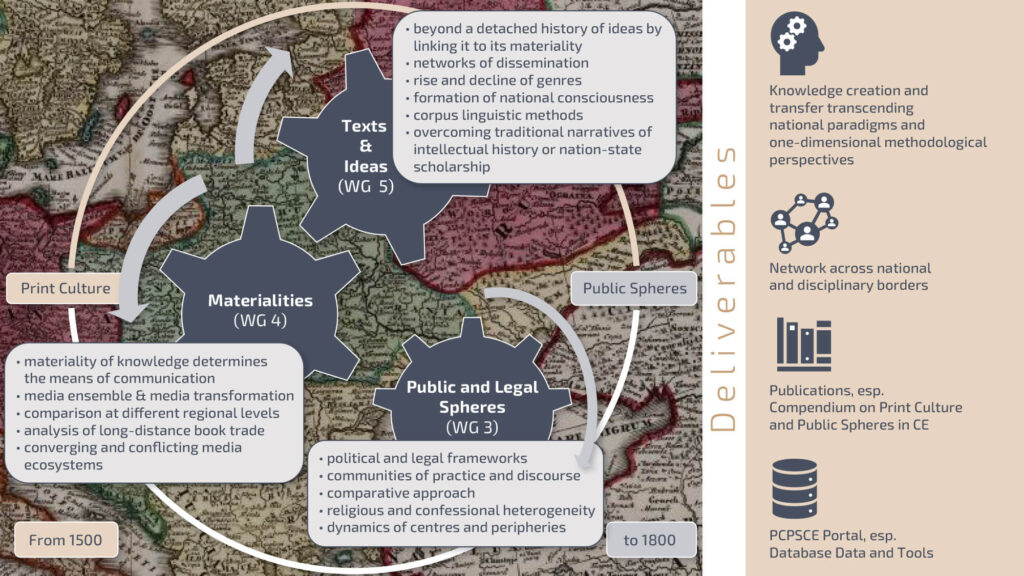The Literature Centre has joined the COST project that studies the interactions between print culture and the public spheres

Since April 2025, the Estonian Academy of Sciences Under and Tuglas Literature Centre has been a partner in the European Union research project Print Culture and Publicity in Central Europe 1500–1800 (PCPSce for short; COST Action CA23137, 2024–2028), which, led by the universities of Innsbruck and Bonn, studies the interactions between early modern print culture and the formation of a democratic public sphere using the example of the non-national past of Central Europe.
Project participants from Estonia are Kaarel Vanamölder, Senior Researcher at the Under and Tuglas Literature Centre who participates in the working group 3 (public-legal spheres: entrepreneurial framework, government regulations, circulation of knowledge) and 4 (materialities of typography: intermediality of print genres, socio-economic aspects, applying machine learning), and the Under and Tuglas Literature Centre Research Professor Kristi Viiding, who participates in the working group 5 (texts-ideas: content-materiality link, emergence/decline of genres, applying corpus linguistic methods).
The drive behind this project is the media revolution of the past decade that has profoundly changed the relationship between public speech and political authority: An unlimited virtual audience is gradually being recognised as an heir to the public sphere forming the modern state’s basis on its way to democracy during early modernity. If we as a society wish to address its ongoing transformation, this public sphere needs to be understood in its historical dimension.
The COST Action deploys the following working groups to analyse the interactions between print and public spheres in Central Europe from 1500 to 1800: (a) public and legal spheres; (b) materialities; (c) texts and ideas. The focus on Central Europe has three reasons: (1) Central Europe is often presented as a discursive ancillary to Western Europe, simultaneously reinforcing an imbalance of sources, data, and research; (2) Central Europe’s nonconformity to standard national paradigms, its interplay of different ‘centres’ and ‘margins’ offers valuable insights into the still relevant de-centrality of public discourse; (3) since many Central European countries figure among the ITC, the Action will contribute to asserting a historical consciousness of multiple public spheres.
Besides filling the two long-standing research gaps – an open-access compendium and a database of data and tools – PCPSCE will build a Central European and global network of diverse stakeholders from education, research, and cultural heritage institutions. The Action will work towards a more integrative methodology bringing together experts from different national and disciplinary backgrounds. This initiative will foster a new scholarly and public historical awareness of the diverse, non-national pasts of Central Europe.
For more information visit the project’s website or the COST website.
Founded in 1971, COST, or European Cooperation in Science and Technology, is Europe’s oldest intergovernmental cooperation in the field. With the support of the Horizon Programme and the member countries, COST helps to bring together researchers and practitioners from many countries and from all fields of research and technology.
